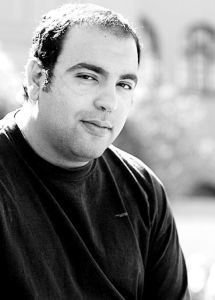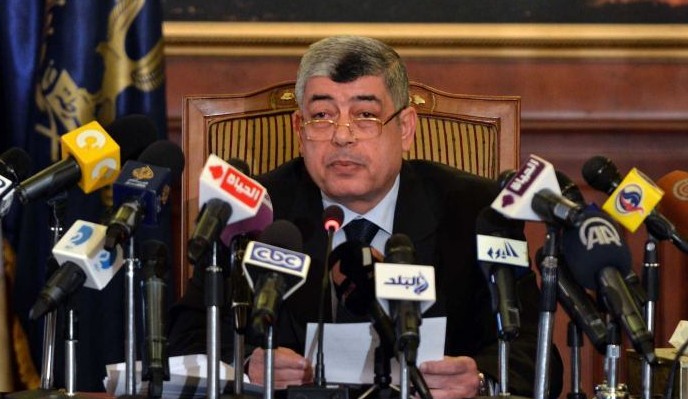 In case you are not familiar with who Mohamed Ibrahim is, he is the current Minister of Interior in Egypt, and a disgrace. He was appointed by former President Mohamed Morsi in the middle of the constitutional crisis in order to turn a blind eye when the Muslim Brotherhood’s thugs were sent to attack and kill anti-Morsi protesters in Itihadiya, an order he carried out perfectly. When 30 June happened, and the interim government was announced, many were surprised to see him still in place, but it seems now that his time in power is running out.
In case you are not familiar with who Mohamed Ibrahim is, he is the current Minister of Interior in Egypt, and a disgrace. He was appointed by former President Mohamed Morsi in the middle of the constitutional crisis in order to turn a blind eye when the Muslim Brotherhood’s thugs were sent to attack and kill anti-Morsi protesters in Itihadiya, an order he carried out perfectly. When 30 June happened, and the interim government was announced, many were surprised to see him still in place, but it seems now that his time in power is running out.
With the current state of play in Egypt, with street clashes, and a daily death toll, the general population currently loathes to criticise the security apparatus. While many Egyptians want the security to return with an iron fist, slowly some are starting to realise that Ibrahim is not the man to provide it, which is hardly surprising given his performance at providing security during the Morsi days. The current stage requires a Minister of Interior who will be able to strategise, plan and execute a smart and precise security strategy while slowly building up the Ministry of Interior’s (MOI) internal capacity to face the challenging coming period, which is why if you ask anyone in the MOI, he is not the man for the job. If anything, he is intensely disliked inside the MOI by his subordinates- unlike his predecessor Ahmed Gamal Eldin who Morsi removed- for exactly that reason: they view him as unprofessional, eager to please his superiors at any cost, and careless with lives.
It’s not hard to see why they view him this way, especially in light of the events of last Wednesday, which lead to almost 700 casualties between police, Morsi supporters and Christians, with almost half of them dying in the indefensible dispersal of Rabaa and Al-Nahda sit-ins. While keeping in mind all that took place in the those sit-ins from incitement, to thuggery, torture and the existence of weapons, it’s easy to understand the international outcry if you know that the dispersal alone has had more deaths than the Syrian civil war at its worst day by at least 100 deaths, and the rest of the day by almost 500 deaths.
While many Egyptians will immediately go on the defensive, stating that this was “the only way to disperse the sit in”, they have no answer regarding why so many others away from the sit-ins have died, and why the worst sectarian attack on Egyptian churches was not stopped or the churches secured.
Many become increasingly uncomfortable the moment they realise that Ibrahim did not inform his deputies or assistants of the time of the dispersal, or that he didn’t have them draft a plan or strategy to face the security backlash. He didn’t even bother informing the “civil protection” division in order to secure the churches, embassies, or even beef up the security of the police stations in preparation for that backlash.
Hence, the inevitable conclusion: 51 churches attacked and/or burnt, museums raided, police stations attacked and police officers slaughtered inside them, almost 700 dead and an international scandal. Most of this could’ve been easily countered or planned for, since he is the one who chose the time of the attack too, but somehow that didn’t cross his mind. His extreme carelessness with the lives of citizens, or even his own men, boggles the mind, but fits the pattern if one looks at his history.
During the reign of Morsi, not only did Ibrahim turn a blind eye to the Itihadiya attack, he also turned a blind eye to the attack on the Coptic Cathedral, which lasted for hours, without the police stopping it, and with some joining the attackers by firing tear gas on to the Cathedral itself. He also sent forces to aid the Brotherhood’s thugs sent to clash with anti-Morsi protesters in Moqattam, when they went to protest in front of the Brotherhood’s headquarters. And if one goes back to 2005, one finds out that he was also responsible for the dispersal of a Sudanese refugees sit-in, which left 20 refugees dead and caused an international scandal for Egypt. That’s two international scandals for Egypt if you are keeping track. Two.
Mohamed Ibrahim was probably kept in the interim government due to 1)not attacking the 30 June protesters (as if he could) and 2) the highly delicate and volatile security situation Egypt is going through right now. But given his unprofessionalism and carelessness with people’s lives, patience within the interim government with him is at its wits end, and his replacement all but guaranteed in the next government reshuffle. No one will be sad to see him go, inside or outside of the ministry, given that he is a black mark on the current government and one that won’t go away until he is replaced. Luckily, it won’t be long until that happens, and hopefully he will be held to account for what he did.
By Mahmoud Salem
Mahmoud Salem is a political activist, writer, and social media consultant. His writings could be found at www.sandmonkey.org and follow him @sandmonkey on Twitter

